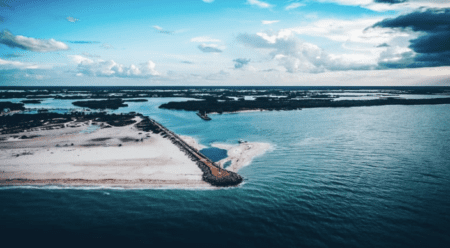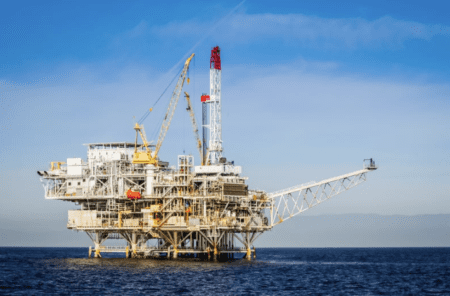Last Updated on April 14, 2025 by SEO Rankings
The Gulf of Mexico is one of the busiest maritime regions in the world, home to countless vessels involved in fishing, shipping, oil and gas exploration, and more. While it’s a vital hub for commerce, it’s also a place where accidents can happen all too easily. Whether working on an offshore platform, navigating through busy shipping lanes, or handling cargo on a dock, a maritime accident can change your life instantly.
If you’ve suffered an offshore injury in an accident on the Gulf of Mexico, one of the most important questions you’ll need to answer is: Did someone else cause your accident? Holding the right party accountable is key to securing the compensation you deserve. Understanding the factors that led to the incident can make all the difference when filing a claim with the help of maritime lawyers.
Common Causes of Maritime Accidents in the Gulf of Mexico
Maritime accidents can occur on vessels, oil rigs, or in shipyards, and can result in serious injuries or even death. These accidents can be caused by a variety of factors, including negligence, equipment failure, or poor safety procedures. Injured maritime workers may be entitled to compensation under federal maritime laws, such as the Jones Act or the Harbor Workers Compensation Act.
Maritime accidents are common because of the dangerous, and sometimes deadly, environments that offshore workers work in. In many cases, someone else’s carelessness, negligence, or outright disregard for safety contributes to the incident.
From faulty equipment to human error, pinpointing the root cause of your accident can help you take the next steps in holding the responsible party accountable. Filing a maritime claim is crucial in navigating the complexities of maritime law and ensuring fair compensation.
Equipment failures: The heavy machinery and equipment used in maritime industries have inherent risks. If equipment isn’t properly maintained or inspected, it’s only a matter of time before something goes wrong. In some cases, equipment failures are due to the negligence of manufacturers, while in others, an employer or other maritime worker fails to maintain or replace worn-out parts.
Human error: Maritime work requires focus, precision, and care. Unfortunately, not everyone always takes the necessary precautions. Human error is one of the most common causes of maritime accidents, whether it’s a crew member’s inattention, a captain’s poor decision-making, or someone operating machinery without proper training. If someone else’s mistake led to your personal injury, they can be liable for the damage done.
Weather conditions: The Gulf of Mexico is notorious for its unpredictable weather. Storms, rough seas, and hurricanes can all create dangerous situations on the water. While no one can control the weather, employers and vessel owners are responsible for ensuring that their crew is well-prepared and that the vessel is equipped to handle hazardous conditions. Someone could be to blame if your accident occurred because the vessel wasn’t ready for bad weather.
Improper safety procedures: Safety should be a top priority in any maritime job, but unfortunately, not all employers and vessel owners take the proper precautions. If your accident occurred because safety protocols weren’t followed – or weren’t in place – you may have grounds for a claim. Potential grounds include inadequate training, failure to provide safety equipment, or not addressing known hazards.
Collisions: Collisions between vessels are another common source of accidents in the Gulf of Mexico. The results can be devastating if a vessel strikes another ship, platform, or dock. Collisions often occur due to someone’s failure to follow maritime traffic rules, improper navigation, or simply not paying attention. Determining who caused an offshore accident is vital to your recovery if you suffered personal injury in a collision.
Types of Maritime Accidents
There are several types of maritime accidents that can occur, including offshore accidents, ship accidents, and harbor accidents. Offshore accidents can occur on oil rigs or other vessels in the open sea, while ship accidents can occur on cargo ships or other vessels in transit. Harbor accidents can occur in shipyards or on docks, and can involve injuries to dock workers or other maritime employees.
Common offshore injuries include falls, equipment malfunctions, and collisions. Maritime accidents can also result in wrongful death, which can have a devastating impact on families and loved ones. A maritime injury lawyer can help families navigate the complex process of filing a wrongful death claim and ensure that they receive the compensation they deserve.
Proving Liability After a Gulf of Mexico Maritime Accident
Proving that someone else caused your maritime accident can be challenging, but it’s a necessary step in securing compensation. Your maritime accident lawyer must demonstrate that another party was responsible for the incident and that their actions (or lack thereof) directly led to your injuries.
Here’s a closer look at the process of proving liability:
Gathering evidence: Strong evidence is key to proving liability. This evidence can include photographs of the accident scene, maintenance records, crew logs, witness statements, and accident reports. An experienced maritime lawyer must show a clear link between the responsible party’s actions and your injuries. You’ll need evidence to support your claim, whether it’s a mechanical failure, a safety violation, or human error.
Determining causation: Your maritime injury lawyer must also establish causation, meaning that the other party’s actions directly caused your accident. For example, if a vessel collided with your ship because the captain ignored traffic rules, you must demonstrate how their negligence led to the crash. Causation is a critical element in any maritime injury case.
Identifying all responsible parties: Maritime accidents can involve multiple parties, from employers and vessel owners to contractors and equipment manufacturers. Your maritime accident lawyer will work to identify everyone who may have played a role in causing your accident. A maritime accident lawyer can also explore all possible avenues for compensation.
Seeking witness testimony: Witnesses can be instrumental in proving liability. Whether it’s fellow crew members, other vessel operators, or even maritime experts, getting testimony from those who saw what happened can strengthen your case. Witnesses can provide important details that might not be included in accident reports or other documentation.
Who Can Be Held Liable in a Maritime Accident?
Maritime accidents often involve multiple parties, and liability may not rest solely with one individual or company. When determining who’s responsible for your accident, your maritime attorneys will consider all the potential players involved. Potentially liable parties include:
Vessel owners: The vessel owner must ensure their ship is safe and properly maintained. The owner may be held liable if an accident occurs because of poor maintenance, equipment failures, or unsafe conditions onboard. Vessel owners are also responsible for ensuring that their crew is properly trained and that safety protocols are followed.
Employers: Maritime employers must provide a safe working environment for their crew. This includes offering safety training, maintaining equipment, and addressing hazards. If your accident occurred because your employer failed in any of these duties, they can be held accountable for your injuries.
Other crew members: If another crew member’s actions led to your accident, they might be partially liable. For example, if someone operated machinery incorrectly or failed to follow safety protocols, their negligence could have caused your injury. In these cases, you can pursue a claim against the individual or their employer.
Contractors and subcontractors: Many maritime operations involve contractors or subcontractors who may be responsible for specific tasks onboard a vessel or platform. If a contractor’s negligence caused your accident – whether through faulty equipment, improper training, or unsafe practices – they can be liable for your injuries.
Equipment manufacturers: Sometimes, accidents occur due to defective equipment. The manufacturer can be liable for your injuries if the machinery or tools used in your maritime work was faulty or malfunctioned. Proving that a defective product caused your accident requires thorough investigation, but it can lead to additional avenues for compensation.
Third parties: In some cases, third parties not directly involved in your maritime work may be responsible for your accident. For example, if a vessel collided with your platform because the other ship’s captain wasn’t paying attention, they can be held accountable for the damage. Similarly, if a dock worker fails to secure cargo properly, leading to an accident onboard your vessel, they may share in the liability.
How a Maritime Accident Lawyer Can Help
Dealing with the aftermath of a maritime accident can be overwhelming, especially when you’re trying to recover from injuries. A maritime accident lawyer can help you in several ways, especially when you’re up against large companies, insurance adjusters, or complex maritime laws. Having someone who understands maritime injury claims by your side means you won’t have to face the legal challenges alone.
For those seeking legal advice, many firms offer a free consultation to discuss your case and help you understand your options.
Investigating the Cause of the Accident
One of the most important roles your maritime accident attorney plays is investigating the cause of your accident. The Gulf of Mexico is a large and busy region, so determining exactly how the incident occurred may require a deep analysis of the events leading up to your injury. Your lawyer will gather evidence, interview witnesses, and review maintenance records to identify the parties responsible for the accident. Completing an accident report is crucial in this process, as it allows you to control your narrative and thoroughly present the facts without pressure.
It’s not always obvious at first glance who’s liable. Your maritime injury lawyer may uncover issues with faulty equipment, negligent training, or inadequate safety measures that played a role in your injury. They will work to connect the dots between what happened and who failed in their responsibilities, giving you a stronger case.
Negotiating With Insurance Companies
Insurance companies often handle maritime accident claims but aren’t always quick to offer fair compensation. They may try to minimize your injuries, delay payments, or offer you a low settlement in the hopes that you’ll accept it out of desperation. Having a maritime accident lawyer on your side means you’ll have someone negotiating on your behalf.
A maritime injury lawyer will assess the full extent of your injuries, considering your medical bills, lost income, and future needs. They’ll work to negotiate a fair settlement that reflects the true value of your case. If the insurance company refuses to cooperate, your lawyer can take the case to court to fight for the compensation you deserve. Injured workers often face mounting medical bills, adding to the financial and emotional stress, making it crucial to secure adequate compensation.
Pursuing Compensation Through Multiple Avenues
Depending on the circumstances of your accident, you may have multiple avenues for pursuing compensation. For example, if a third party caused your accident, you could have the option to file a personal injury lawsuit in addition to a workers’ compensation claim. A maritime accident lawyer will explore all potential sources of compensation, ensuring that you’re not leaving any money on the table.
Compensation may come from the Longshore and Harbor Workers’ Compensation Act (LHWCA) or the Outer Continental Shelf Lands Act (OCSLA) for those injured on offshore platforms. Your lawyer will help you understand which laws apply to your case and pursue compensation accordingly.
What If You’re Injured on an Offshore Oil Rig?
The Gulf of Mexico is home to hundreds of offshore oil rigs, making it one of the most dangerous maritime environments in the world. If you work on offshore rigs and you’re injured in an accident, the process for seeking compensation may differ from other maritime jobs.
Offshore oil workers are typically covered by the Jones Act, which covers lost wages, medical bills, disability, pain and suffering, and more for injured maritime workers. However, accidents on offshore platforms often involve complex legal issues, including third-party liability and multiple layers of safety regulations.
If you suffered an injury on an oil rig, it’s important to work with a maritime accident attorney who understands the unique challenges of these cases. They’ll help you determine who’s responsible for your accident, whether it’s the platform owner, your employer, or a third party, and pursue the compensation you deserve.
Understanding the Jones Act
If you’re a seaman working on a vessel in the Gulf of Mexico, you may be eligible to file a claim under the Jones Act (also known as the Merchant Marine Act). This federal law allows injured maritime workers to seek compensation for injuries caused by their employer’s negligence. Examples of negligence can include unsafe working conditions, inadequate training, or failure to provide proper safety equipment. The Jones Act is a significant piece of maritime legislation that provides rights and protections for injured seamen working on U.S.-registered vessels.
Unlike workers’ compensation claims, the Jones Act allows seamen to pursue additional damages for pain and suffering, lost income, and future medical expenses. If your employer’s negligence caused your accident, a Jones Act claim can provide you with the compensation you need to recover from your injuries.
Why Timing Matters After a Maritime Accident
Timing is critical when it comes to filing a maritime accident claim. There are strict deadlines for filing lawsuits under maritime law, and waiting too long can mean losing your right to pursue compensation. Whether you’re filing a claim under the Jones Act, the LHWCA, or another maritime law, acting quickly is essential.
In addition to the legal deadlines, taking action as soon as possible can help preserve evidence and strengthen your case. The longer you wait, the more difficult it may become to gather the necessary documentation, interview witnesses, and prove liability. The earlier you start, the better your chance of securing the compensation you deserve. Serious injury resulting from maritime accidents underscores the urgency of filing a claim promptly.
How to File a Maritime Lawsuit
Filing a maritime injury claim can be a complex and challenging process, and requires the expertise of an experienced maritime lawyer. The first step in filing a maritime injury claim is to collect evidence of the accident, including witness statements, medical records, and accident reports. A maritime injury lawyer can help collect this evidence and build a strong case on behalf of the injured worker.
The next step is to determine which federal maritime law applies to the case, such as the Jones Act or the Harbor Workers Compensation Act. A skilled maritime attorney can help navigate the complex process of filing a maritime injury claim and ensure that injured maritime workers receive the maximum compensation they deserve.
Speak With a Maritime Accident Lawyer
Recovering from a maritime accident can be a long and difficult journey, making it crucial to seek legal representation. Whether you’re dealing with physical injuries, emotional trauma, or financial stress, you don’t have to go through it alone. A maritime accident lawyer can help you understand your rights, pursue compensation, and hold the responsible parties accountable for the harm they’ve caused.
You have the right to hold negligent parties accountable and pursue the compensation you need to move forward with your life. Contact a maritime accident lawyer at The Young Law to schedule a free consultation.





